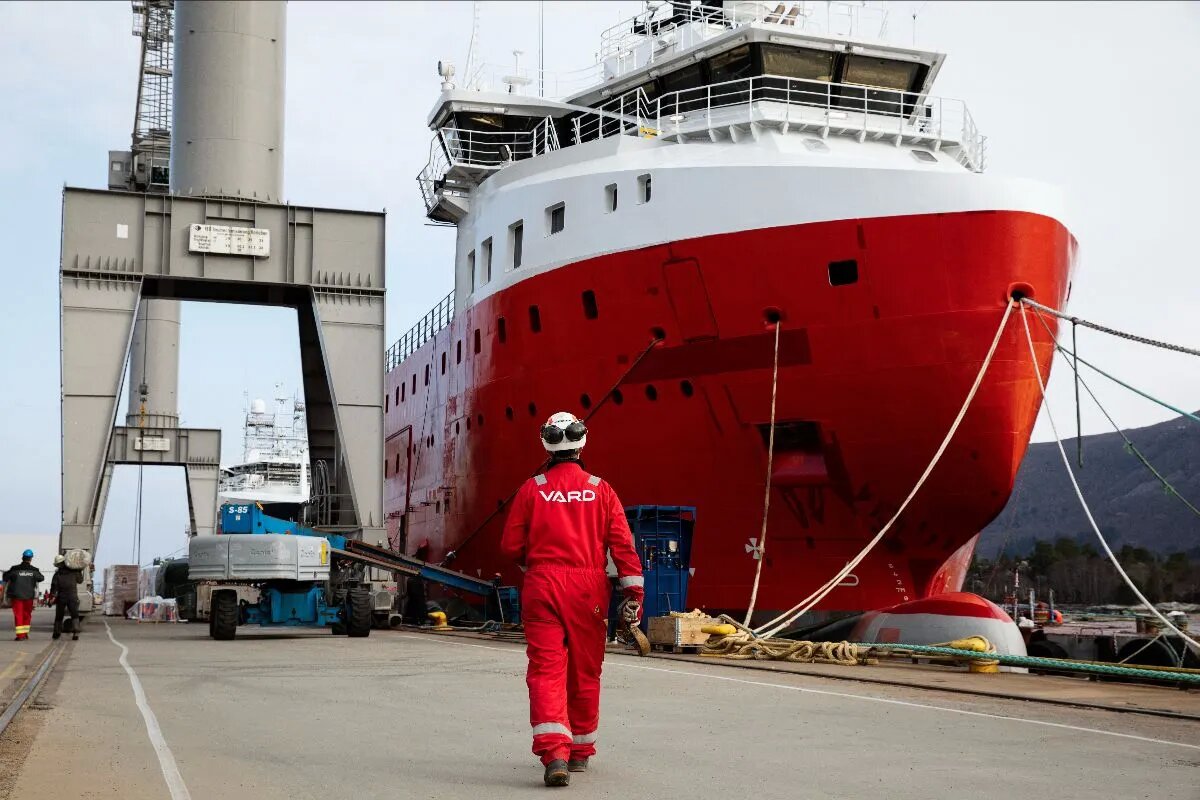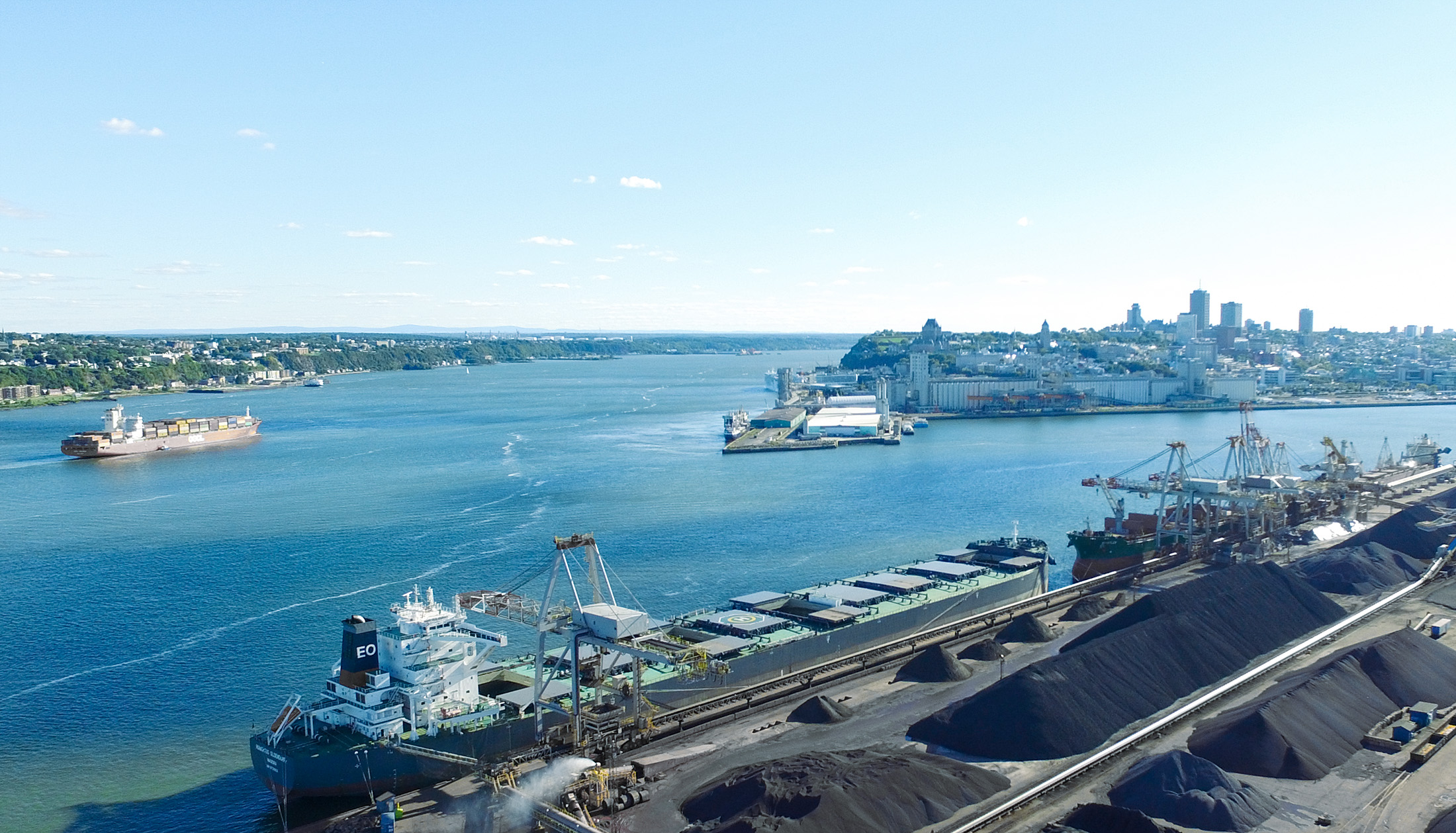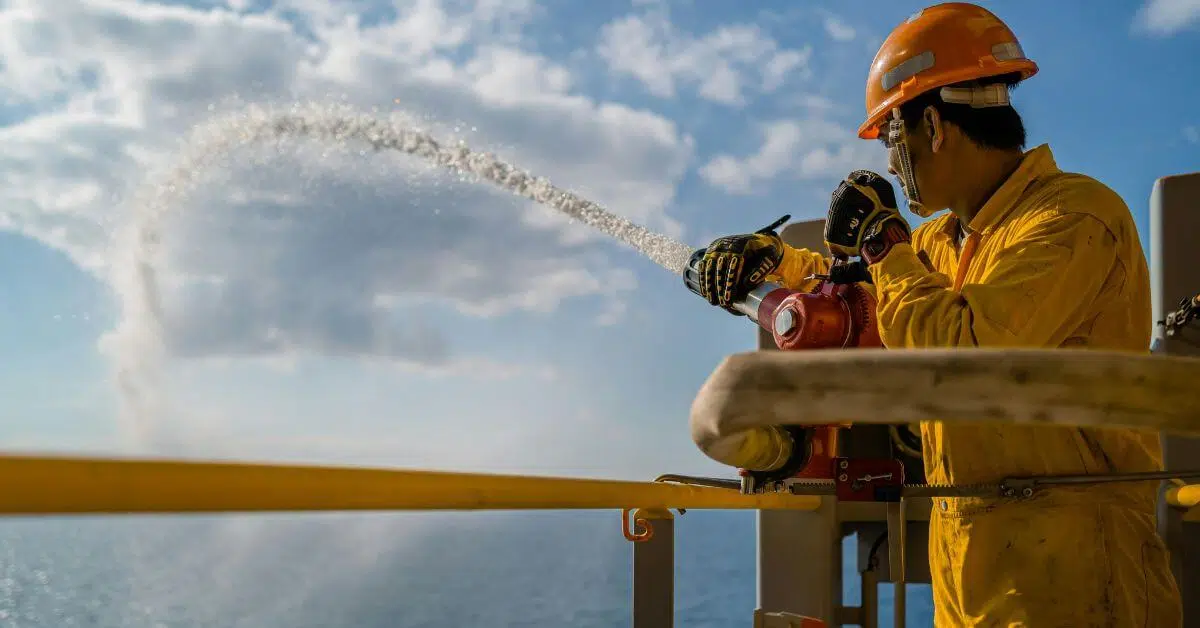– There have been some statements reflected in the public regarding pilotage. I would like to start by getting your views on this matter.
As is known, pilotage and tugboat services are an important service provided by the state for ships to navigate safely at sea, perform maneuvers, and ensure the safety of life, property, and the environment. These services guide ships in Turkey’s maritime areas and especially in the Turkish Straits, minimizing potential dangers.
Starting from 1993, permits for these services began to be granted to private companies. Therefore, a regulation was issued in 1998, followed by a new one in 2002. However, the Council of State canceled the 2002 regulation on the grounds that it had no legal basis. Despite this decision, for about 16 years, there were those who provided services without any permits or regulations. Our legal struggle continues against the baseless words, unjustified and unfounded applications, and complaints made by those who have operated for a total of 24 uninterrupted years, and 16 years in the manner I described, against the organizations that act in accordance with procedure and law today.
– Mr. Düzgit, what do the new tender regulations bring for the provision of pilotage and tugboat services?
In the new regulations, the tender method is based on bidding over the “Public Share Ratio”. That is, whichever company commits to a higher public share wins the tender. However, this method also brings some significant drawbacks. Because the higher the public share ratio, for which no upper limit is set, the lower the profitability of the company providing the service. This can indirectly negatively affect the service quality and the personal rights of the employees.
– What impact could this situation have on maritime safety?
Providing services under cost pressure can jeopardize navigational safety and maritime security. Companies trying to offer a higher public share with lower costs may cut essential investments, avoid employing qualified personnel, or provide services without the necessary technical infrastructure. This poses serious risks to life, property, and environmental safety.
– What kind of problems could arise for pilots?
Companies wanting to win tenders by increasing the public share ratio may have to reduce pilots’ wages, decrease rest periods, or make them work longer hours to protect their profit margins. This creates an unacceptable situation both in terms of employee rights and operational efficiency.
– Could you make an assessment regarding technical competency? What conditions are sought for companies participating in the tender?
One of the most noticeable problems is the almost complete lack of criteria related to technical competency. A company participating in a tender can apply by merely submitting a commitment letter stating that it will employ a certain number of pilots, even if it has never provided this service before. It is even considered sufficient for the company to declare that it will supply only 20% of these captains. This is a major deficiency in a field as sensitive and requiring expertise as maritime.
– What is the level of technical requirements for tugboats?
There is also a serious gap in the current regulations regarding the tugboat fleet. For example, instead of tugs with high maneuverability, modern and equipped with safety systems, it becomes possible to provide services with vehicles of uncertain technical capability.
However, according to world standards, tugboats with high fire-fighting capacity, twin screws, and high maneuverability should be preferred.
– What kind of picture emerges when compared to tenders implemented in other sectors?
This is a very accurate question. For example, in tenders related to vehicle inspection stations, both technical competence and experience requirements are clearly defined. Companies bidding for the tender are required to have at least 5 years of experience and to have inspected at least 1 million vehicles. Furthermore, the public share has been fixed; meaning the competition was based on the operating right transfer fee. This method is a more balanced approach that considers public benefit more. However, in pilotage and towage services, neither technical nor financial competence has been clearly and sufficiently defined.
– What could be the long-term effects of tenders conducted in this way?
This approach could lead to both a decrease in service quality and an increase in security vulnerabilities within the sector in the long term. It could also lead to serious setbacks in workers’ rights. High Public Share rates that may occur in towage services will result in organizations, which will obtain the licenses for 20 years, never being able to build new tugboats again and being unable to renew their aging tugboats. Today, the cost of an ASD tugboat with 60 tons of bollard pull is approximately 7,000,000 EUR. Pilotage and towage services are of critical importance for life and property safety. Therefore, the tender processes in this field should be reshaped based on long-term public benefit and safety, not short-term revenue increase.
– Well, how are the public share rates shaping up in the recent tenders for pilotage and towage services?
The public share rates offered in the tenders are quite high. For example, rates as high as 89.75% for Aliağa and 89.50% for Kocaeli-1 have been seen. These figures mean that companies are offering to leave a very large portion of their gross revenue to the state.
– What kind of results do these high rates lead to for the sector?
Although offering the public share rate this high seems to provide more revenue to the state at first glance, it actually creates serious risks for the sustainability of the service. Companies wanting to work with these rates would have no profit margin and would operate at a loss. This could lead to cost-cutting, and consequently, a decrease in service quality.
– What are the effects of this situation on maritime safety?
The most fundamental risk is that these services directly concern life, property, and environmental safety. It could lead to consequences such as inadequate equipment, insufficient personnel, or lack of training. In the Ministry’s own evaluations, for example, regarding Kocaeli-1, it was clearly stated that the offered public share “did not cover the minimum expenses,” “did not seem possible for the sustainability of the service,” and “posed a risk for navigation, life, property, and environmental safety,” and consequently, the tender was canceled by the Ministry.
– Why did the Ministry cancel the tenders?
As I mentioned earlier, the decision to cancel was made on the grounds that the public share rates offered in tenders held in regions like Ambarlı and Kocaeli would make it impossible to carry out the service properly. The Ministry clearly stated that the service could not be sustained in the long term with such high rates and that it could pose serious threats to safety.
– As I understand, you think the process cannot be sustained under the current Regulation.
What are your general recommendations regarding the changes to be made to the Regulation?
I believe that not only a change in the Regulation but also a change in the Law may be necessary. The public share ratios must be clearly determined, the financial and technical competencies of the tender participants must be ensured, the monopolization of the service must be prevented, and competition must be increased. Furthermore, it is important that the operating right transfer fee is determined through fair, transparent, and competitive methods and that this fee is collected upfront. These steps will both increase public revenues and enhance service quality.
– What kind of regulation do you propose regarding public share ratios?
Considering the transaction volume by region, it is considered reasonable by the sector to take a maximum of 45% of the gross revenue for Pilotage services and 35% for Tugboat services as the Public Share. Exceeding these ratios could create risks for the sustainability and safety of the services. Indeed, the Ministry is also issuing cancellation decisions based on these views.
– What criteria do you propose regarding technical competency?
Companies participating in the tender must have operated in the relevant service areas for at least 5 years and must document that they have served a total of at least 5,000 ships in the last 5 years. This way, the quality and safety of the services can be guaranteed.
– What are your views regarding the letter of undertaking practice?
I recommend terminating the practice of the notarized letter of undertaking regarding employees’ obligation not to compete with the employer. I believe that besides this practice being unlawful, it also negatively affects labor peace.
– What is your recommendation regarding guarantee amounts?
It is proposed that the provisional guarantee be set at 3% of the 20-year total of the annual gross revenue in the tender area, and the final guarantee at 6%. This ensures financial competency and the uninterrupted continuation of services.
– What kind of changes do you propose regarding the operating right transfer fee?
Unless the current law is changed, we propose that the relevant law also be amended to ensure the transfer fee is determined in a fair, transparent, and competitive manner.
– Finally, there are some discussions in the sectoral press regarding the Kocaeli-2 Regional Service Area pilotage tender. There are claims on the agenda that while the highest and second-highest bidders were eliminated, the tender was awarded to the third-highest bidder. What would you like to say about this?
Yes, the relevant articles of the Regulation stipulate that if the remaining bidder in the tender does not meet the necessary conditions or does not sign the contract, the tender shall be awarded to the second-highest bidder, and if it is understood that both bidders do not meet the conditions, the tender will be canceled.
Reports in the press claim that in the Kocaeli-2 Regional Service Area, the highest and second-highest bidders were eliminated and the tender was awarded to the third-highest bidder. We will all soon learn whether these claims are true or not.
In my opinion, transparency and compliance with the law should be fundamental in such matters. Conducting tender processes in full compliance with the regulation is extremely important for maintaining trust in the sector.
It is expected that our Ministry will clarify these questions.
In conclusion; while no person or organization even mentions these issues, everyone remembers that as the organization I represent, in our written application to the Ministry in 2017, we submitted a proposal to increase the Public Share or determine the Operation Right Transfer Fee, provided that the necessary safety conditions are met, along with the studies that form the basis of this proposal. Today, for our sincerity to be questioned, and moreover for this questioning to be done by those who have provided these services uninterruptedly for 24 years in much wider service areas compared to today, and for 16 of these 24 years without any permits or regulations, undoubtedly has no meaning other than absurdity.
7DENİZ/SPECIAL




